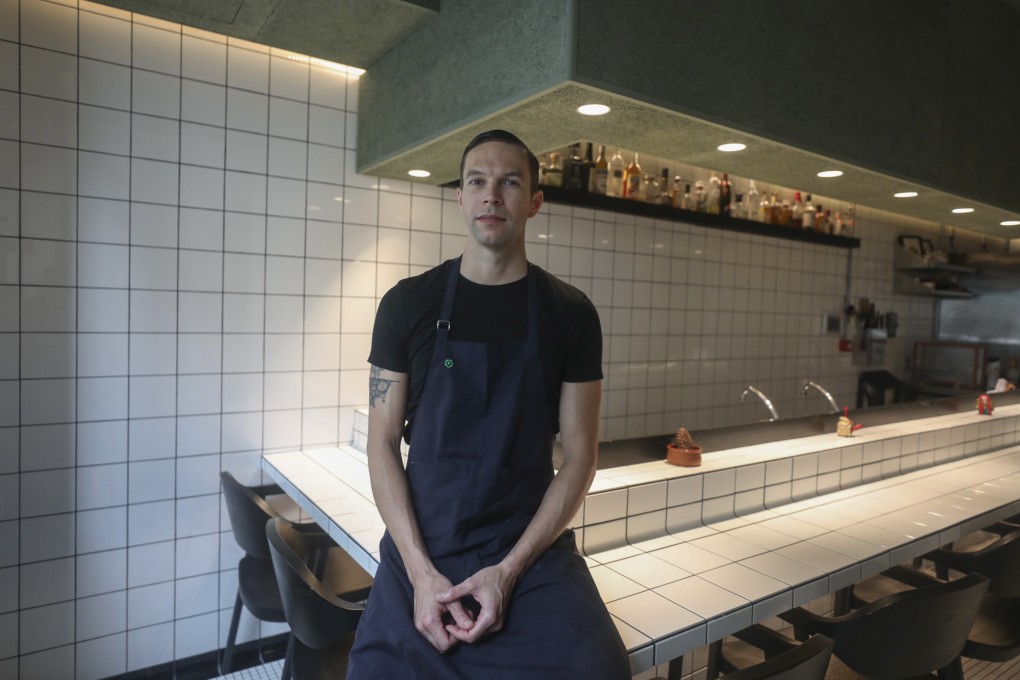Advertisement
The Hong Kong restaurant where you can pay in bitcoin and other cryptocurrencies
- Max Levy, chef-owner of Okra Hong Kong, got the idea for letting diners pay in cryptocurrency from the multicurrency bank account he uses to pay suppliers
- His restaurant accepts bitcoin, ether, Ripple, Binance Coin and Binance stablecoin. Diners’ bills are converted using rates updated every hour
Reading Time:3 minutes
Why you can trust SCMP
2

A year ago in April, the coronavirus pandemic was devastating Hong Kong’s restaurants. Max Levy’s Japanese fusion restaurant Okra Hong Kong in Sai Ying Pun could only fill 14 of its 28 seats because of pandemic social-distancing rules that limited restaurants to operating at half capacity.
A year on, poor business during the coronavirus pandemic and Hong Kong’s exorbitant bank fees have pushed Levy to accept payments from diners at his restaurant in cryptocurrencies.
On Wednesday, Okra Hong Kong started accepting payments made in bitcoin, ether, Ripple, Binance Coin, or the US-dollar-backed Binance stablecoin. He sees the move away from cash as a way to improve the balance sheet.
Advertisement
“The main thing that I saw last year through the pandemic was traditionally most restaurants and most small producers don’t have any savings,” says Levy, who is also the restaurant’s head chef.

What savings they have are stored as cash, which, unlike cryptocurrencies, allows restaurants to easily spend the very low balances they keep, he says.
Advertisement
Advertisement
Select Voice
Select Speed
1.00x